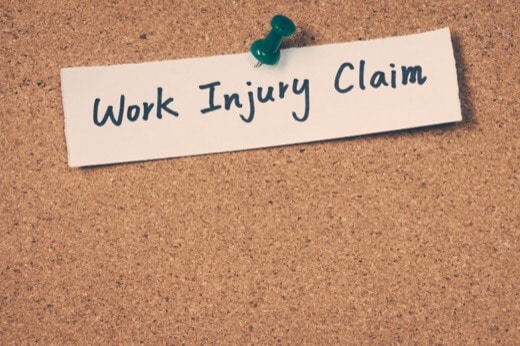We become so comfortable and used to the mundane routine in our jobs that we don’t ever expect an accident to happen, so if it does, an incident at work can be a massive shock to the system. The key to dealing with a work accident is procedure. Having a process in place that anyone can follow that helps resolve the situation.
However, these can be a bit on the cold side and don’t really take into account the chaos of emotion that can happen at the moment.
So we’ve taken common steps in most accident procedures and added in the missing bits of advice that will help you cope emotionally in a tough situation. Here are our emotionally intelligent guidelines to a work accident:
Make it safe
A work accident can make people react in several different ways; some freeze, some get the heck out of there and some dive right in to help.
These are all normal reactions when confronted with something shocking and stressful, so don’t feel bad if you freeze to the spot until someone tells you to do something.
Even someone tripping an injuring themselves can do this, so don’t beat yourself up because of your instincts.
However you react, you need to take a second to consider the situation and ensure it is no longer dangerous. This piece of advice is mainly aimed at those whose instinct is to immediately help.
You need to make sure whatever hurt the first person doesn’t then lead to someone else getting hurt. Turn off machines, remove hazards, do whatever necessary to keep the injured person from further harm but also to stop yourself from walking into a dangerous environment.
Give first aid
If you’re the first on the scene, you might need to do some immediate first aid, but be careful if you’re not trained. Don’t try to move them unless it’s dangerous for them to stay where they are, and try to get them to stay still if you think they’re underestimating the severity of their injury.
If the injured person isn’t in a serious condition from their injury, stay with them and comfort them while someone qualified is found.
Help keep them calm
In the immediate aftermath of someone getting hurt, they’ll probably focus on small things and panic about them, which is quite normal as they process what’s going on. Try to focus their attention on one topic that is removed from the situation they’re in.
Ask them questions about normal life and encourage them back onto the topic if they suddenly switch back to panic-mode.
Comforting and calming someone is more useful than you think at the time, it will help doctors to be able to talk to a non-panicked person to find out what’s wrong, and they’ll appreciate someone taking care of them.
Make a record
After the incident is over, you’ll still take a bit of time to process what happened and you might be asked by your workplace to write down what went on.
It can be difficult to put your thoughts in order, so just grab a pen and write it down as it comes, not worrying about whether or not it makes sense.
Take this as your starting point, and then you can start to piece together a timeline, probably adding more detail as you go.
It’s important to do this as soon as you feel comfortable to, even if no one asked you to because details will fade quickly.
It might also help you emotionally process what happened rather than trying to forget it. This sort of witness statement helps with health and safety investigations and even compensation claims.
Offer support
Once your colleague is recovering, don’t be afraid to continue to offer help and support; it will likely be welcomed. You might be able to help them make sense of what happened as their memories are clouded or might be able to help them with putting together their own timeline of the incident.
If this is the case, don’t be surprised if they look to make an industrial injury claim. The statement you wrote down immediately following the accident is useful to solicitors in figuring out what exactly happened and if your employer was negligent in any way.
It’s important to let your colleague make their own decision about making a claim or not, even if you have a personal opinion about it. Trying to sway them, either way, isn’t really worth the difficulty it could create. Just be honest about what happened without bringing personal opinion into the issue.







